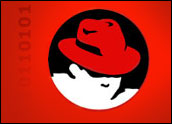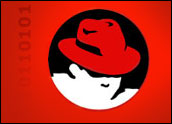
Microsoft CEO Steve Ballmer has made courting Linux users and those considering the open-source option a top priority and said the sheer volume of innovation that Longhorn development efforts are producing will make the next version of Windows worth the wait.
Ballmer commented on a range of topics during a Gartner-sponsored trade show for information technology executives yesterday, saying that it’s a “myth” that Linux is more secure than Microsoft’s products.
“We’re more secure than the other guys,” Ballmer said, blaming the sheer volume of attacks against his company’s products on their popularity and the resulting fame that can be gained by hacking them. “There are more vulnerabilities in Linux, it takes longer for Linux developers to fix security problems. It’s a good decision to go with Windows.”
He said Microsoft has other advantages over Linux as well. “I think we do deliver more value, we can stand behind our products in ways that open source can’t,” he said.
Analysts and executives say Ballmer believes that converting those who have already made the leap to Linux and preventing more from doing so will help the software giant maintain its profit and sales growth.
On Deck
Ballmer made his comments just before Microsoft was due to report earnings for its first quarter late yesterday. The company reported earnings up 11 percent, beating analysts’ expectations, having benefited from stronger-than-expected computer and server shipments.
For the three months ended September 30, Microsoft reported earnings of US$2.90 billion or 27 cents per share, compared with earnings of $2.61 billion or 24 cents per share in the same period a year earlier.
Many analysts have begun to question whether Microsoft can manage to continually put up the kinds of growth numbers it needs to in order to keep satisfied those investors accustomed to the company being on a steep growth curve.
Those analysts say Microsoft is entering a phase of maturation as a corporation, when sales typically grow far more slowly. They point to the company’s decision to pay a healthy quarterly dividend to investors as a sign that Microsoft recognizes the change as well.
But indications are that Ballmer isn’t willing to give up on growth that easily. In what is now an infamous annual memo to employees, Ballmer called out Linux as the chief threat to Microsoft and tapped top sales executives to target Linux users, even sending Microsoft salespeople to the annual LinuxWorld conference.
The company has since hired Linux sales people to sell its products, reportedly grabbing as any as ten Red Hat sales professionals as well as the main Linux marketer from IBM.
Ballmer also argued that the true amount of shifting from Microsoft to Linux in places like Europe and Asia has been overstated in the media. The city of Munich, which made a splash by moving to convert some 14,000 desktops to Linux, is an often-cited but rarely duplicated example, he said. More recently, however, the city of Paris has reportedly been mulling a similar switch.
Not Without Fight
Enderle Group principal analyst Rob Enderle said despite some initial arrogance toward open source, Microsoft has taken the threat seriously and is working to respond in what it believes to be the best way available.
“They’ve made it clear they’re going to try to produce more innovations, crank out software that does more and is easier to use,” Enderle said. “Microsoft is now taking it seriously and they’ve got a track record of getting results when they take something seriously.”
At the same time, some potential Linux converts may be frightened by potential litigation. Ballmer addressed that concern, saying that customers of Microsoft can rest assured that if the software company is accused of patent infringement, Microsoft — and not its users — will step up and take responsibility.
Forrester Research analyst Paul Jackson said Microsoft will likely take every chance it can get to talk about Longhorn. While doing so is a reminder of the delays, it also is a way of keeping customers tuned into the eventual release and serves to keep them focused on the improvements instead of the delays.
“Customers want to know if it’s going to be worth it,” Jackson said. “They want to hear Microsoft talk about innovation and making software more productive.”
Ballmer has been called a “direct” executive who speaks his mind, and he often makes a splash with Microsoft detractors for that reason. Most recently, he downplayed the importance of what Apple had done in the online music space, saying its wildly popular iPod is most often used to download and play stolen music.





















































